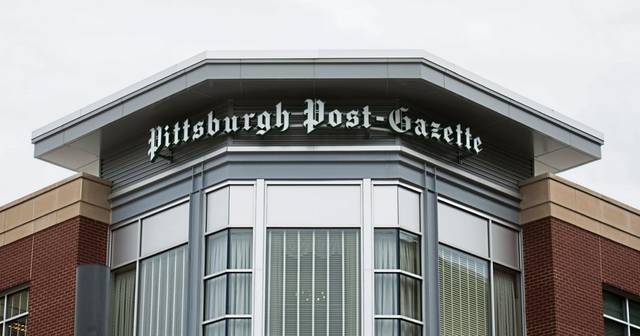The Pittsburgh Post-Gazette this week claimed a discrimination inquiry by the city’s Commission on Human Relations — opened in June after a Black reporter accused the newspaper of violating her civil rights — is unconstitutional.
In a lawsuit filed in federal court Tuesday, the Post-Gazette asked the court to declare the inquiry and complaint a violation of the First Amendment.
“A newspaper’s decision about what stories to cover, which reporters to assign, and how to edit those stories are matters of editorial judgment protected by the free press provisions of the United States and Pennsylvania Constitutions and are not subject to the Commission’s regulatory authority,” according to the lawsuit.
An attorney for the Pittsburgh Commission on Human Relations said the filing speaks for itself. An attorney representing the Post-Gazette could not immediately be reached for comment.
The commission filed the complaint June 9 following a firestorm brought on by the newspaper barring reporter Alexis Johnson from covering Black Lives Matter protests. Her May 31 social media post that sparked the situation said: “Horrifying scenes and aftermath from selfish LOOTERS who don’t care about this city!!! … oh wait sorry. No these are pictures from a Kenny Chesney concert tailgate. Whoops.”
Editors decided that Johnson’s tweet meant she was unable to fairly cover the ongoing protests, though they noted she had previously not reported on any of the protests and only pitched protest-related stories.
Fellow reporters showed their support for Johnson publicly. The Post-Gazette’s lawsuit claims the uproar was motivated by an ongoing labor dispute between management and the labor union representing reporters and photographers.
“The controversy that led to the Complaint was fueled, in large part, by participants in a labor dispute with the newspaper who sought to exploit the situation by trying to manufacture proof that the Post-Gazette was engaged in discriminatory conduct,” attorneys for the newspaper wrote. “But that plan backfired — and proved just the opposite — because the newspaper insisted that all members of its staff adhere to standards of journalistic integrity, and applied its policies equally across the board.”
The commission’s complaint had cited a tweet by a white male Post-Gazette reporter supporting Johnson and “unlike his African-American female peer, the Post-Gazette did not immediately remove the white male journalist from coverage.”
While the commission’s complaint didn’t name the white male journalist, the Post-Gazette lawsuit identified him as copy editor Joshua Axelrod. The newspaper’s attorneys wrote that the Newspaper Guild of Pittsburgh used the incident to “manufacture ‘evidence’ of discrimination.”
Attorneys for the newspaper wrote: “The Post-Gazette responded to the Guild’s effort to manufacture evidence of differential treatment by neutrally applying the traditional rules of professional journalism and assigning protest coverage only to those who were not active on social media with respect to the protests.”








